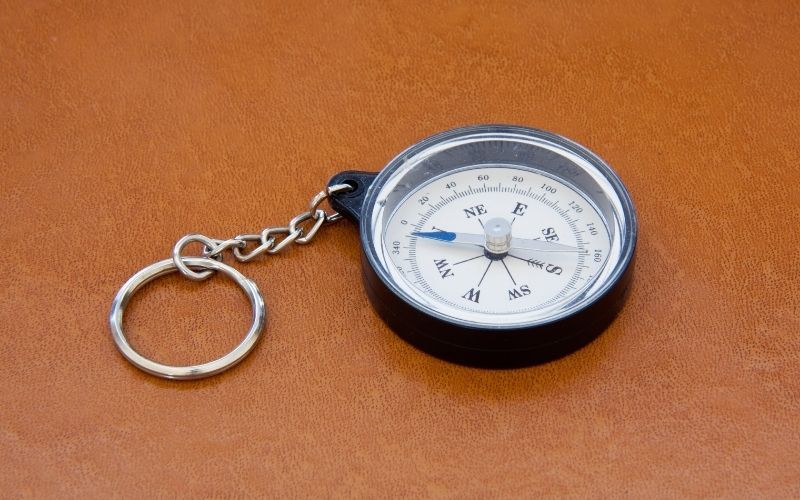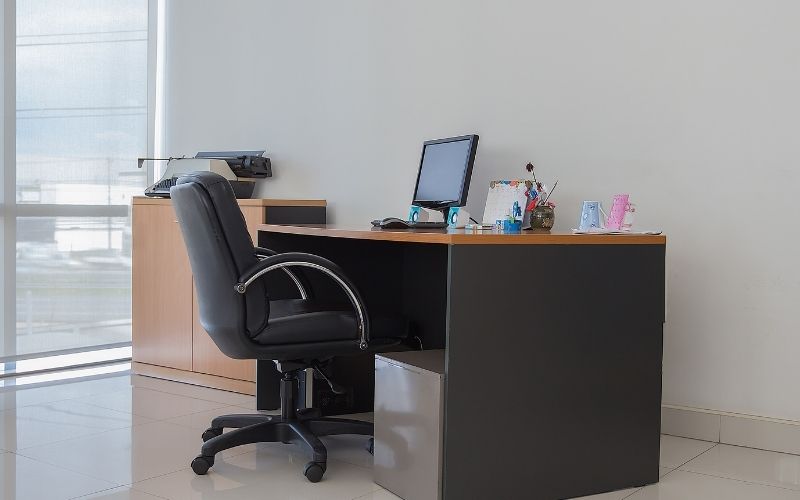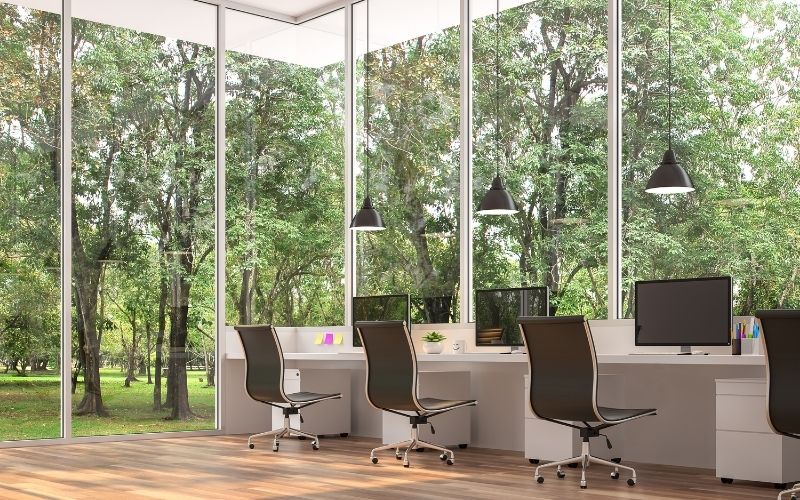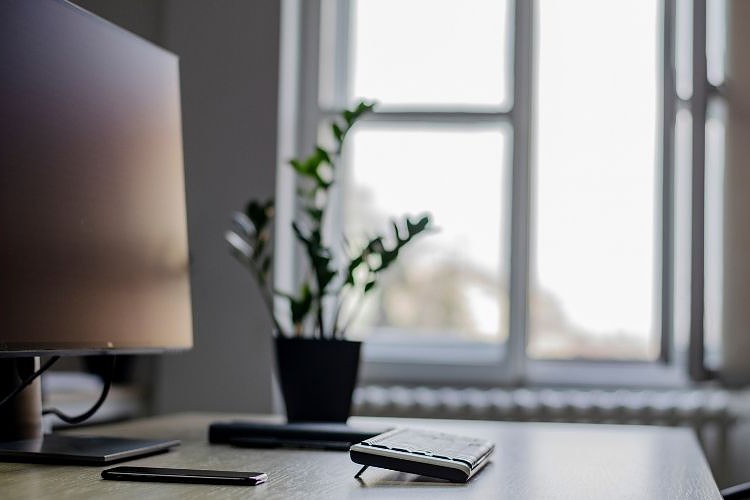Productivity in the workplace has long been a hot topic for employees and employers alike. Many elements can affect workplace performance, and one that’s very easy to control is the office layout.
A perfectly arranged workspace is comfortable, ergonomic, and a joy to spend time in each day. This leads to a boost in employee morale and overall productivity.
Is there an ideal office arrangement or desk orientation that will improve employee performance?
Let’s get into it!
Table of Contents
Should Your Desk Face East or West?

Experts recommend that office desks face east to improve performance and increase output. The east is where the sun rises from. As the day progresses, it is the first to receive the light coming from the sun.
Additionally, due east is consistently the brightest area of the sky. This limits the need for artificial light until later in the day when most of the brightness from the sky wanes.
Another good option is to face your desk to the north, putting the sun to your right. This allows the light to hit your writing hand, making writing notes and signing documents easy, thanks to the natural illumination.
Note that there are no hard and fast rules about desk directions. In fact, there are many different office workspace elements that will affect your performance and productivity in the office.
Where Should a Desk Be Placed in an Office?
Before you take that compass out and decide that facing your desk to the north or east should be your first priority, here are other things you should consider:
Proper Lighting is Very Important to Productivity

Productivity can significantly benefit from good lighting. Natural light would be best, but an efficient artificial lighting system would work well, too.
Now, we’ve already said that the best desk orientation is to the east. This allows natural light to stimulate your productivity as the day progresses. You can benefit the most from the sun in the early hours of the morning until noon.
Unfortunately, it’s impossible to rely entirely on natural light to illuminate your office. When there is little daylight outside, you will need powerful indoor lights that don’t cast shadows as you work at your desk.
Choose a Pleasant View
Position your desk so that you have the best view possible. Ideally, this should still be towards the east. But if you can’t point your desk in that specific direction, pointing it north or northeast is the next best thing.

Take advantage of large windows that face nature. Not everyone can work near an ocean or a mountain, but even a simple collection of trees or a small garden can significantly benefit your mood at work. Natural scenery can have a calming effect and will help inspiration soar, thus increasing your output.
If you don’t have the luxury of windows near your desk, placing a small potted plant or a tiny tabletop waterfall fountain can help simulate nature, with a similar effect on your mental health.
Level and Number of Distractions Present
What is the number one performance killer present in any office? Distractions.
Anything that could take your focus away from the task at hand can seriously hamper your productivity. You don’t want that. So, try to pick a desk orientation or view that will not be too distracting as you sit on your desk.
Your desk should also be at a significant, productive distance from workmates so you can focus on your tasks. Ideally, workstations should have at least 2 meters of space between them.
Should You Face the Wall or Work Behind a Post?

It may seem like a good idea to work while facing a wall, but in the long run, this arrangement may make you feel trapped or uninspired. And if you spend most of the day facing away from everyone else in the office, your colleagues may feel that you are antisocial or difficult to work with.
The same is true for desks situated behind a post or column. Try to avoid these desk orientations at all costs.
How It Makes You Feel at the End of the Day
How you feel about your workspace and your overall work environment will largely dictate how you perform each day. A well-oriented and efficiently arranged desk will help you focus on your work, day in and day out.
Cleaning up at the end of each workday is a great way to ensure that you won’t have to deal with clutter the next morning. Keep your desk organized at all times so you have all important documents and equipment within easy reach. You may be surprised at how much these simple things can boost your work performance.

Consider a motorized standing desk to balance your time between sitting and standing throughout your shift. Prolonged sitting can do tremendous damage to a person’s health, and a standing desk can mitigate these negative effects.
Did you know that there are also intangible elements that can affect your performance? Feng shui experts have shared how to properly position your desk to harness the positive energy you need for productivity and prosperity.
According to Feng Shui (Chinese Geomancy)
Feng shui is a popular philosophy for design enthusiasts who want to ensure that their home and work spaces harmonize with the natural world. The goal of feng shui is to harness the energy in a specific space and establish balance among all the elements within it.
Maximizing energy in an office space involves arranging furniture. Office feng shui is meant to increase performance, productivity, and attract wealth into the space.
To bring feng shui into your office, you must face the door without being directly in front of it. This allows you to see who is coming in and command the situation as it appears.
Your back must be against a solid wall, and your chair must have a high back. Your desk or your office should incorporate live plants and moving water to create positive energy. Decorate your space with warm, inviting colors, such as soft yellow, pale gold, pale green, blue-green, or white.
Conclusion
The ideal workspace involves balancing many different physical elements to create an environment where you can be as productive as possible. Important details such as desk orientation and arrangement can significantly boost your comfort level and, therefore, your work performance.
Simple things such as sunlight, natural scenery, and ample space to navigate around your desk or your office can keep you inspired and focused day in and day out. If you aren’t satisfied with your work setup, try to adjust a few things and see if it can make a difference!

My name is Vance, and I am the owner of To Ergonomics. Our mission is to improve your workflow by helping you create a supportive and welcoming environment. We hope that you’ll find what you’re looking for while you’re here.

